The Canada Border Services Agency (CBSA) is moving ahead with the implementation of Release 3 of the CBSA Assessment and Revenue Management system (CARM R3). The implementation of CARM R3 will bring significant changes on the way the agency collects duty and tax payments on goods imported commercially into Canada.
On Friday, October 4th, the CBSA decommissioned the former GST Direct and Importer Direct Security options. Under CARM R3, effective October 21, 2024, the payment options listed below will become the only means to pay amounts owing to the CBSA on imported goods.
In certain circumstances, a customs broker, such as W2C, may be hired by an importer to manage their duty and tax payments to the CBSA. However, CARM was designed for most importers to pay their duties and taxes directly to the CBSA, and the CARM Client Portal (CCP) is the tool that the government provides to importers to facilitate their duty and tax payments to the agency.
For a customer who was paying the CBSA directly for monthly GST amounts under the former GST Direct option, payment by cheque will be eliminated and the importer will have to pay the agency using one of the electronic payment methods accepted by the agency. In addition to GST amounts assessed on their imported goods, the importer also becomes responsible for paying these other amounts directly to the CBSA, if applicable: customs duties, anti-dumping duties, countervailing duties, surtaxes, excise tax, interest and penalties, etc.
For a customer who was already paying the CBSA directly for all their disbursements under the legacy Importer Direct Security option, nothing really changes other than the CBSA will be eliminating cheque payments. Such a customer will continue to pay the agency directly for all amounts due the CBSA, however they will need to do so using one of the electronic payment methods accepted by the CBSA.
Existing customers who will feel the biggest impact of these changes are importers for whom the customs broker was paying the CBSA on their behalf, as most of these clients will now be required to pay the CBSA directly for duties and taxes on their importations. With few exceptions the broker will no longer pay for them, and these importers will need to begin paying the CBSA directly using one of the electronic payment methods accepted by the CBSA.
While a customs broker may be hired by some clients to manage their payments to the CBSA in the new CARM environment, whether because they are non-residents that do not have an account with a Canadian financial institution approved by the CBSA, or they are clients who are unable to pay electronically, or be they customers for whom the customs broker will agree to manage the task of paying duties and taxes, it is nonetheless expected that the majority of importers will make arrangements to begin paying all of their customs disbursements directly to the CBSA.
In order for a customs broker, such as W2C, to manage duty and tax payments for one of their clients, such an importer will need to grant the broker the required level of delegation of authority through their CCP account, and the client will need to complete and sign certain government forms authorizing the CBSA to transmit the importer’s Daily Notices and Statements of Account to the broker’s (e.g. W2C) operating system. The client and W2C must also agree on the applicable fees for this service, as well as credit terms, negotiate applicable fees and the method of collecting payment from the client for the amounts that will be disbursed by W2C.
For importers who will pay the CBSA directly as of October 21, they can pay the amounts recorded and posted to their account in the CCP using the payment methods outlined below.
Whether the payment is made by the importer or by a service provider, all payments must be made in Canadian dollars and must be paid by the due date set by the CBSA; otherwise, interest and penalties will be charged. That said, between October 21, 2024 and January 19, 2025, the CBSA says it will not issue late accounting penalties, late payment penalties or interest charges. However, during this period, an overdue importer account may still be subject to recovery actions or have its importer number blocked pending payment.
Amounts payable and their respective due dates are shown on Statements of Account posted to the importer’s CCP account on the 25th of each month. Payments received by the CBSA are recorded in the CARM system and will appear on the importer’s PCG account in the transaction history and account balance.
The CBSA does not accept:
- Electronic Fund Transfers (EFT)
- Direct Deposits
- Wire Transfers
- Direct Payments using the U.S. Automated Clearing House (ACH) option
Importers have the choice of using one of these four (4) electronic payment methods to pay the CBSA directly:
| Payment Method | Limit (in $CAD) | Is a CBSA Approved Bank Required? |
|---|---|---|
Online via the CCP – Credit or Debit(The customer must link their CCP account to either: a Visa, Mastercard or American Express credit card, or a Visa-debit or Mastercard-debit card) |
$4,999.99 |
Not applicable |
Online Banking(Online banking service per the customer’s financial institution) |
Unlimited |
Yes |
Electronically through the CCP – Pre-Authorized Debit (PAD) Option(The customer must link their financial institution to their account on the CCP and set up a one-off or ongoing PAD agreement) |
$100 million |
Yes |
Payment at a Point-of-Sale location (CBSA Office)(By Interac, by Visa, MC or Amex Credit-Card, or by Visa-Debit or MC-Debit |
$4,999.99 |
Not applicable |
Important considerations
Credit card or debit option via the CCP
- Credit or debit limits are subject to the limits imposed by the cardholder’s financial institution and may differ from the limit indicated in the table above.
- If the balance payable to the CBSA exceeds the limit of $4,999.99 CAD, it is permissible to make multiple credit or debit payments through the CCP, insofar as each payment does not exceed the $4,999.99 CAD limit and subject to the cardholder’s limit with their financial institution.
Online banking option
- When a client uses the online banking option, that client does not pay the CBSA through their CCP account.
- Instead, that client will use the financial information available on the CCP, but the client will need to log in separately to their financial institution to transmit their online banking payment to the CBSA.
- The bank must be one of the financial institutions approved by the CBSA.
- It is also important to choose the correct recipient/receiver of the payment (“payee”) according to the name that the financial institution was assigned for online banking payments to the CBSA.
- Using online banking applications sometimes results in a delay in the receipt of the payment by the CBSA. To avoid penalties for late payment, it is recommended to make the payment one or two days before the due date indicated on the client’s Statement of Account posted in the CCP.
Pre-Authorized Debit (PAD) Option via the CCP
- A Pre-Authorized Debit (PAD) agreement allows the client to set up monthly pre-authorized deductions from their bank account.
- Please be aware that PAD payment withdrawals are made for the total amount due as indicated on the importer’s Statement of Account (SOA) as posted to the CCP. The total amount due on the SOA must be available in the client’s bank account at the time the PAD payment is withdrawn.
- Failure to do so will result in the PAD payment not being completed, which may result in a bank charge for insufficient funds and a penalty issued by the CBSA for late payment.
- PAD payments must be set up at least 10 business days prior to the payment due date. The importer-client may cancel a PAD agreement at any time, except within 24 hours of the next PAD withdrawal. The importing client can also enter dates in their CCP account for the activation and/or termination of a PAD agreement.
- A PAD agreement will not be displayed on the client's CCP until it becomes active.
- Each PAD agreement is accompanied by a PDF document that can be downloaded, which contains the details of the agreement.
List of financial institutions currently approved by the CBSA to make direct payments via Online Banking or via Pre-Authorized Debit (PAD) using the CCP:
- Royal Bank of Canada (RBC)
- Scotiabank
- TD Canada Trust
- Bank of Montreal (BMO)
- Canadian Imperial Bank of Commerce (CIBC)
- National Bank
- Desjardins
- HSBC
- Laurentian Bank
- Tangerine
- Citibank
- Central One Credit Union
- ATB Financial
- Bank of America
- JP Morgan Chase
- Meridian
- Shinhan Bank Canada
To learn more about other changes under CARM Release 3, please consult our blog CARM R3 Implementation here on October 21, 2024.
If you have any questions, or if your business is not yet registered on the CARM Client Portal and would like assistance on portal registration, which will resume on October 22, please contact your W2C representative.



